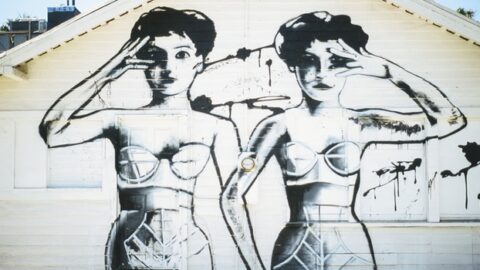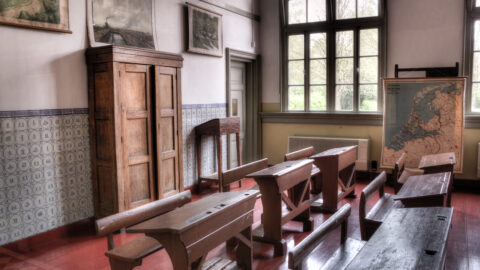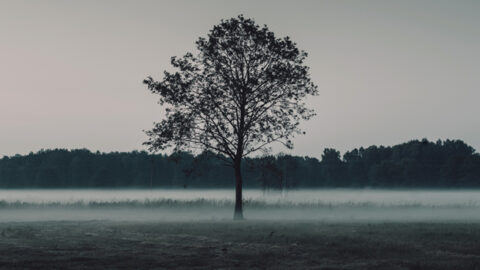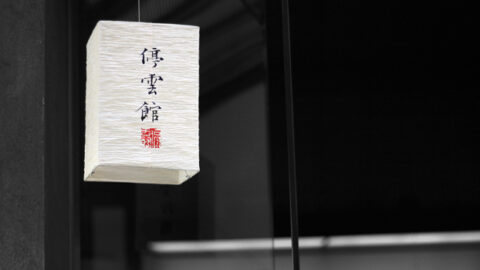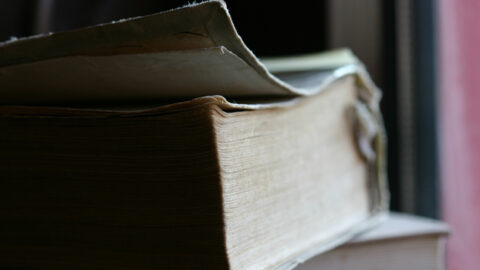As far as I’m concerned, the two most addictive reads to come out of Summer 2016 are: the novel The Girls by Emma Cline (Random House, June 2016) and the memoir Land of Enchantment by Leigh Stein (Plume, August 2016).
Writing is my ritual. My desk is my altar.
Where to write?
The question has intrigued me for all of my adult life. Occasionally Poets & Writers Magazine will run the feature Where We Write, which examines a writer’s tie to their hometown, or a place that inspires them, or attending a residency that few can afford or even dream of.
I don’t know any glossy mag or blog that has tried to make sense of where, physically, writing takes place. What I mean is: I went seven years without a writing desk.
The real danger of Harry Potter has nothing to do with witchcraft
At the end of July 2016, a select few London theatre-goers were able to witness an update to the Harry Potter story with a new stage production, written by J.K. Rowling, Jack Throne and John Tiffany.
Those not in the audience were able to purchase the screenplay. And, I’m just projecting here, feel a rush of nostalgia and ruminate on what it means to grow up and come of age with The Boy Who Lived. (Spoiler alert: one day he’ll be 40.)
Reciting Poetry: The Power to Stun or to Heal
During the feverish summer of 2014, I began to fall in love.
With a new person. And with poetry anew.
Being On the Move and Out of Place
In my writing life I fight to cultivate a routine to make sure I get words written. I also try to squeeze words into every surprisingly spare moment.
Two Jersey Girls Try to See Helen Oyeyemi Speak in Philadelphia
We’re both low on data, to start with.
Write Dangerous, or Write Safe?
The January/February 2016 issue of Poets & Writers magazine features a stimulating essay by author and writing instructor Tom Spanbauer called “Dangerous Writing: Go to Your Battlefield.”
“To write dangerous is to go to parts of ourselves that we know exist but try to ignore,” Spanbauer writes. “Parts that are silent, and heavy. Taboo. Things that won’t leave us alone.”
In Praise of Indoor Spaces: A Photo Essay
On any given day, I prefer being out of doors. I’m a hiker, a gardener, a beach bum, a wanderer. Being inside is difficult. For me, Seasonal Affective Disorder manifests itself as claustrophobia.
Unfortunately, I live in a part of the world that gets a very real winter. Short days, snow, clouds covering the sun. Chafed ankles from snow boots. Chilled red ears from a biting wind.
This is the time of year when we make resolutions to do better, be better. I’m going to try to think better. I will try to enjoy being indoors more, and take more opportunities to create. Sitting at a table. Knitting by a fire.
The Moon, Antarctica and Other Sites of Fruitful Solitude
Modest Mouse’s album, The Moon and Antarctica, was already five years old when I first heard it—as a file shared over AOL Instant Messenger. When I downloaded the file inside my dorm room at the beginning of sophomore year of college, I didn’t know it would become the soundtrack to some of the most delicious and productive solitude of my life.
Spirit in the City: Lauren Nixon on Creative Places and Spiritual Practice

Lauren Nixon is a Food and Wellness Educator who guides people in cultivating spirit-filled lives through self-care practices and real, healthy food. She writes about healthy food for BlackGirlinOm. Her writing has also appeared in MindBodyGreen, Elephant Journal, Cooking Light Magazine’s Simmer, Boil Blog and others.
I spoke to Lauren during a time of exciting transition
The Book I Read Before I Was Ready: The Red Tent by Anita Diamant
When I was fifteen years old, my mother’s book club read The Red Tent by Anita Diamant. Whether she knew it or not, I was reading along with her.
Bad Kids at the Milk Tea Shop: Leisure Time, Reading and Writing in Chengdu and Neijiang, China
Luis Humberto Valadez was born and raised in Chicago Heights, Illinois. He received his MFA from the Jack Kerouac School of Disembodied Poets at Naropa. His publications include the poetry collection what i’m on from the University of Arizona Press (2009) and the book/music project Valid Lush from Plumberries Press. After completing a term of service with the Peace Corps in Neijiang, Sichuan, China, he was hired by Peace Corps China as a TEFL Manager and is currently based in Chengdu. More of his work can be found at here. Valadez takes his job supporting Peace Corps teachers seriously, and also tries to fit in a literary life.
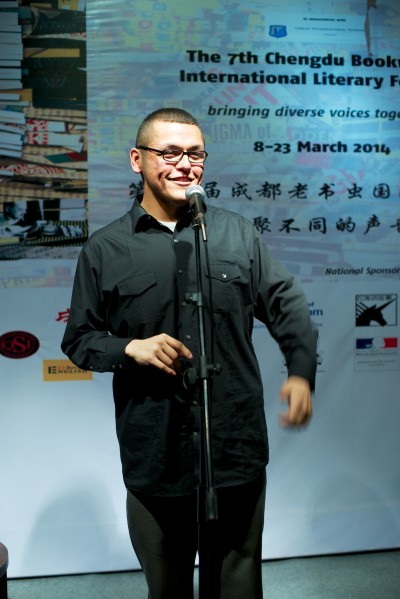
Literary Treasure Hunting in Cape Town
Between 2006 and 2012, I lived in and studied in Cape Town, South Africa. During my time there, I discovered works I never would have found in the States (where I’m from). I could have wept with joy when I occasionally, unexpectedly, stumbled upon great books in junk shops with low-low prices. It was like unearthing a treasure. I spent uncountable hours reading in the African sun—on a quiet corner of campus, on a beach off the Atlantic Ocean, under any tree I could find.
John Ashbery and the Eastern Bloc: The Absurd is Our Guide
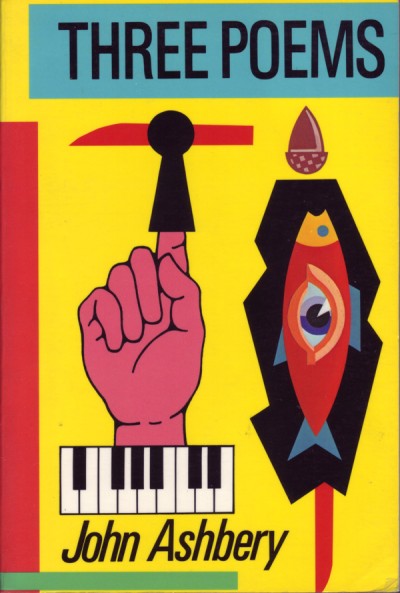 John Ashbery, My Guide
John Ashbery, My Guide
The past three decades have been an exciting time for poets from formerly Soviet nations. Many contemporary poets from this region came of age (and established their voices) while poetry was inextricably linked to rebellion against communist regimes. You were a protest poet—or you weren’t a poet. But after the dissolution of many corrupt governments in the 1980s, poets were able to inhabit or create different identities—even apolitical ones.
I find myself hungry for these voices, and want to hear their stories. I’ll be the first to admit I often lack the context for the works—and I’m reading English translations to boot. As an American reader, I lean on more familiar poets to be my guides. Slovenian poet Tomaž Šalamun has often cited his affinity for (and influence by) American poet John Ashbery. And so, Ashbery has been my escort through Šalamun and other poets from this region.
Remembering “Before I Forget” by Andre Brink
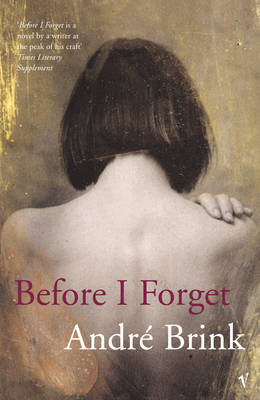 The first time I went to Cape Town, South Africa, I was about to turn twenty. A junior in college, I had little experience with life, love or literature and I was hungry for more. In the Cape Town library, I discovered Before I Forget, Andre Brink’s shameless fictional recollection of lovers possessed by the book’s narrator—who happens to be an aging South African author.
The first time I went to Cape Town, South Africa, I was about to turn twenty. A junior in college, I had little experience with life, love or literature and I was hungry for more. In the Cape Town library, I discovered Before I Forget, Andre Brink’s shameless fictional recollection of lovers possessed by the book’s narrator—who happens to be an aging South African author.
I was captivated.
When I decided to reread it nine years later, all I could remember was that it was indulgent. In the opening pages, eighty-year-old Chris Minaar sets up the premise: He’ll recount every woman with whom he’s slept over the course of his long, debauched life as a white South African novelist.

